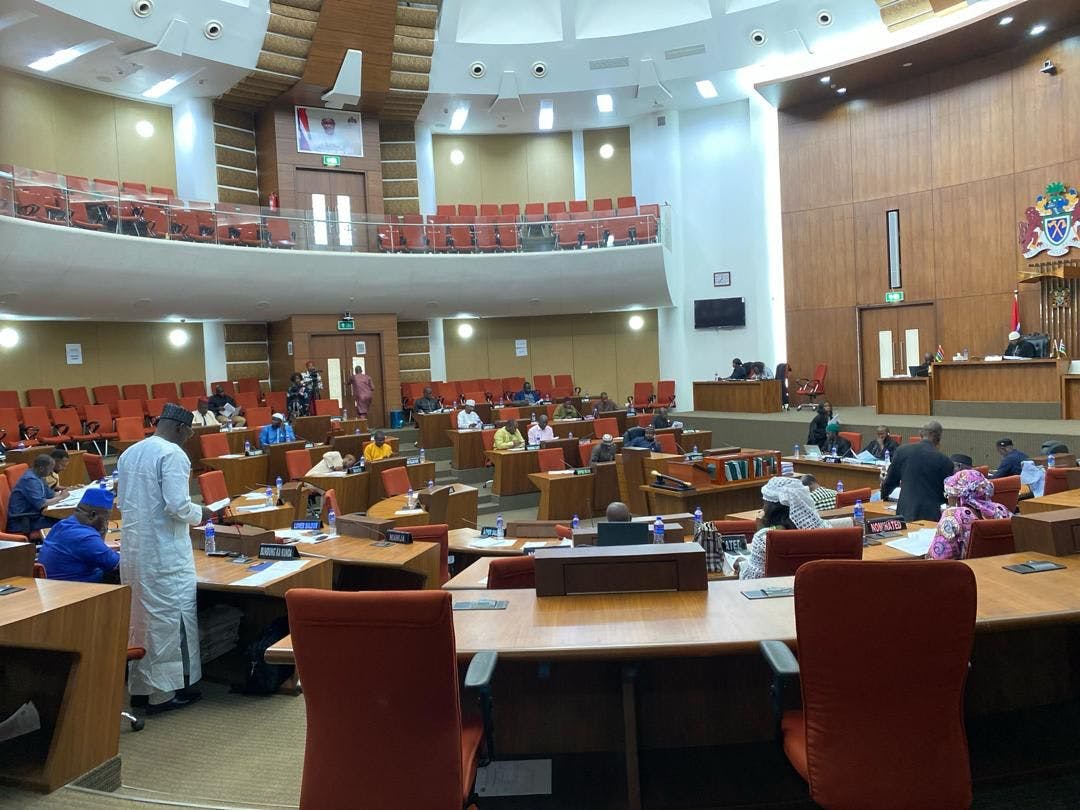GAMBIA RECORDS BUDGET SURPLUS OF 1.5 BILLION IN 2023 FISCAL YEAR
March 5, 2024
3 min read
As dictated by Order 94 (1) of the Standing Order of The National Assembly of The Gambia. Which reads ‘’The Vice President or a Minister with responsibility for Finance shall, at least once during each session of the Assembly, make an oral ministerial statement to the Assembly on the implementation and monitoring of the annual budget.’’ The Minister of Finance and Economic Affairs on Monday, 4th March 2024, appeared before law makers to give a statement on the Implementation of the 2023 fiscal year budget.
In his statement to the National Assembly, Honourable Seedy K. M. Keita, Minister for Finance and Economic Affairs gave an overview of how Gambia Government Consolidated Fund has been managed and executed during 2023 fiscal year highlighting the key aspects of the budget, such as revenue, expenses, and their variances. Additionally, financial performance analysis of The Gambia against the set targets.
On the aspect of consolidated revenue mobilization, the Minister highlighted that ‘’Domestic revenue Performance for the 2023 fiscal year indicates a very impressive outturn, reaching GMD17.81 billion compared to a budget of GMD16.89 billion, representing an over performance of 5%. This impressive performance is the results of better-than-expected outturn for international trade taxes, which registered a 29% growth. Total revenue including program grants reached GMD21.9 billion compared to a GMD19.7 billion budget. By specific tax heads, import duty grew by 15%, whilst import VAT recorded a growth of 47%. Nontax revenue performed 48% more than expected as results of an improved revenue collection of CED (Customs and Excise Duties) by Gambia Revenue Authority (GRA). The capital revenue also performed more than expected by GMD 701 million, which is attributed to the sale of Mega Bank.’’
Hon. Keita stated that the overall expenditure amounts to GMD 20.4 billion, which is beyond the budget for the year just 0.6% and is as a result of increase in Interest payments and personal emoluments(PE). ‘’ It should be noted while we were able to constrain discretionally expenditures within their budget, statutory expenditures such as PEs and Interest Payment exceeded their annual budget due to unexpected increase both in wage bills and interest payments by 12% and 4% respectively. The overrun expenditure in PEs can be attributed mainly to Ministry of Basic Education (GMD 470 million), Ministry of Foreign Affairs (GMD 320 million), Ministry of Interior by (GMD 83 million) and Ministry of Health (GMD 81 million). Expenditure on Other Charges was judiciously managed within their budget with an execution rate of 99%. Expenditure on Debt Interest exceeded its annual budget by 4% due to 10% increase in domestic interest payment. The short-term nature of domestic debt portfolio has exposed it to interest rate it to hikes in interest rates. Capital Expenditure was lower than its target by 11%.’’
‘’Although a gross deficit of GMD 666.6 million was budget, a surplus of about GMD 1.5 billion is realize. This surplus position in December is due primarily to the realization of budget support. We received more budget support than was budgeted’’ he concluded.
